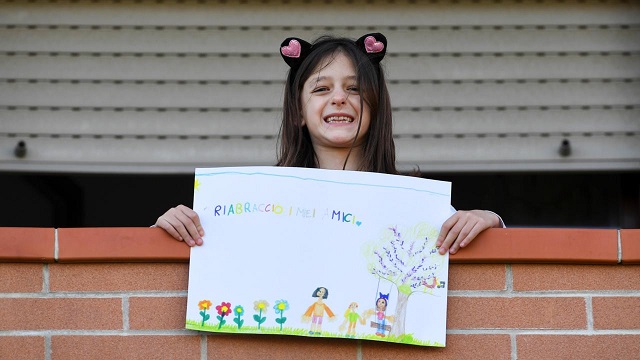
How Covid-19 is changing the world’s children
From their academic success to their social skills and mental health, the pandemic is a crisis for today’s children – and the fallout may follow them for the rest of their lives.
When children and adolescents grow up, will they see themselves as a “lost generation”, whose lives will forever fall in the shadow of a global pandemic?
Advertisement
The school closures are one of the most visible – and controversial – means by which Covid-19 is affecting young people. According to Unesco, the education of nearly 1.6 billion pupils in 190 countries have so far been affected – that’s 90% of the world’s school-age children. And at the time of writing, there were still no definite plans for opening the schools of around half of these children.
There has been much debate over the exact role that school closures have played containing the overall spread of the virus. It is just over five months since the novel coronavirus was first reported in Wuhan, meaning that the data describing its transmission and the effects of any particular measure are still patchy.
But according to Richard Armitage, in the division of public health and epidemiology at the University of Nottingham, those legitimate scientific questions about the effectiveness of school closures should not be taken as a justification for re-opening them prematurely.
“An absence of evidence is not necessarily evidence of absence,” he says.
We know, after all, that transmission is higher in densely-packed, indoor spaces, and although the danger to children may not be as high as the risk to the adults teaching them, the virus does seem to evoke an extreme reaction in a very small number of paediatric cases.
Crucially, children may become carriers who transmit the virus to the most vulnerable members of society, such as their grandparents. After all, they’re not exactly known for their fastidious hygiene.
All of which may make a full return to normality unlikely for most children in the next few months. And when that is combined with the other stresses of living in isolation under quarantine, it may have some serious consequences – delaying their cognitive, emotional and social development. For those in the most critical periods of adolescence, it may even increase the risk of mental illness.
Since the poorest will be hardest hit by all of these effects, lockdowns are expected to widen the existing inequalities across the globe, with repercussions for years to come.
“It’s disadvantaged children who pay the greatest price here, as they will fall the furthest behind, and have the fewest resources available to ‘catch up’ once the pandemic threat has passed,” says Armitage.
Some clues to these effects come from studies of short-term school closures due to snow. In 2007, Dave Marcotte, a professor in public affairs at American University in Washington DC, examined the standardised test scores of third, fifth and eighth graders in Maryland.
The effects of school closures were greatest for the youngest children, with each lost day resulting in around 0.57% fewer children reaching the expected grades in reading and maths. The average school lost around 5 days, in total, due to bad weather – resulting in around a 3% drop in the overall pass rate – equivalent to roughly one child in a classroom of 30.

Time in education is thought to be essential for helping children to mature (Credit: Getty Images)
early, even relatively brief periods of time out of education can have a lasting impact. It’s not just the missed opportunities for learning that need to be considered during the current crisis, however. The more serious concern is that, when schools are closed for long periods, many children will begin to forget what they already know – a regression that will be much harder to remedy.
BBC




